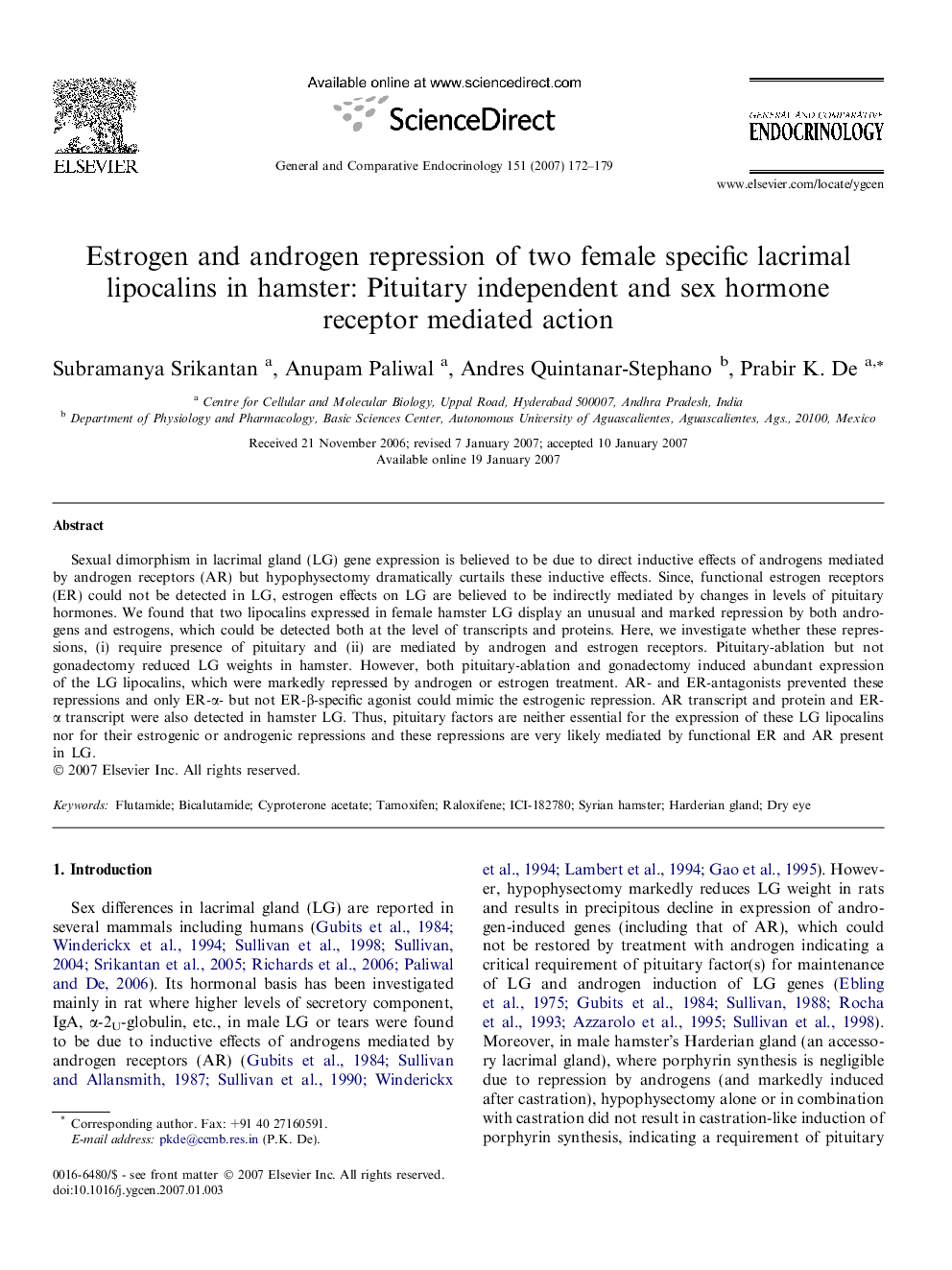| Article ID | Journal | Published Year | Pages | File Type |
|---|---|---|---|---|
| 2801999 | General and Comparative Endocrinology | 2007 | 8 Pages |
Sexual dimorphism in lacrimal gland (LG) gene expression is believed to be due to direct inductive effects of androgens mediated by androgen receptors (AR) but hypophysectomy dramatically curtails these inductive effects. Since, functional estrogen receptors (ER) could not be detected in LG, estrogen effects on LG are believed to be indirectly mediated by changes in levels of pituitary hormones. We found that two lipocalins expressed in female hamster LG display an unusual and marked repression by both androgens and estrogens, which could be detected both at the level of transcripts and proteins. Here, we investigate whether these repressions, (i) require presence of pituitary and (ii) are mediated by androgen and estrogen receptors. Pituitary-ablation but not gonadectomy reduced LG weights in hamster. However, both pituitary-ablation and gonadectomy induced abundant expression of the LG lipocalins, which were markedly repressed by androgen or estrogen treatment. AR- and ER-antagonists prevented these repressions and only ER-α- but not ER-β-specific agonist could mimic the estrogenic repression. AR transcript and protein and ER-α transcript were also detected in hamster LG. Thus, pituitary factors are neither essential for the expression of these LG lipocalins nor for their estrogenic or androgenic repressions and these repressions are very likely mediated by functional ER and AR present in LG.
